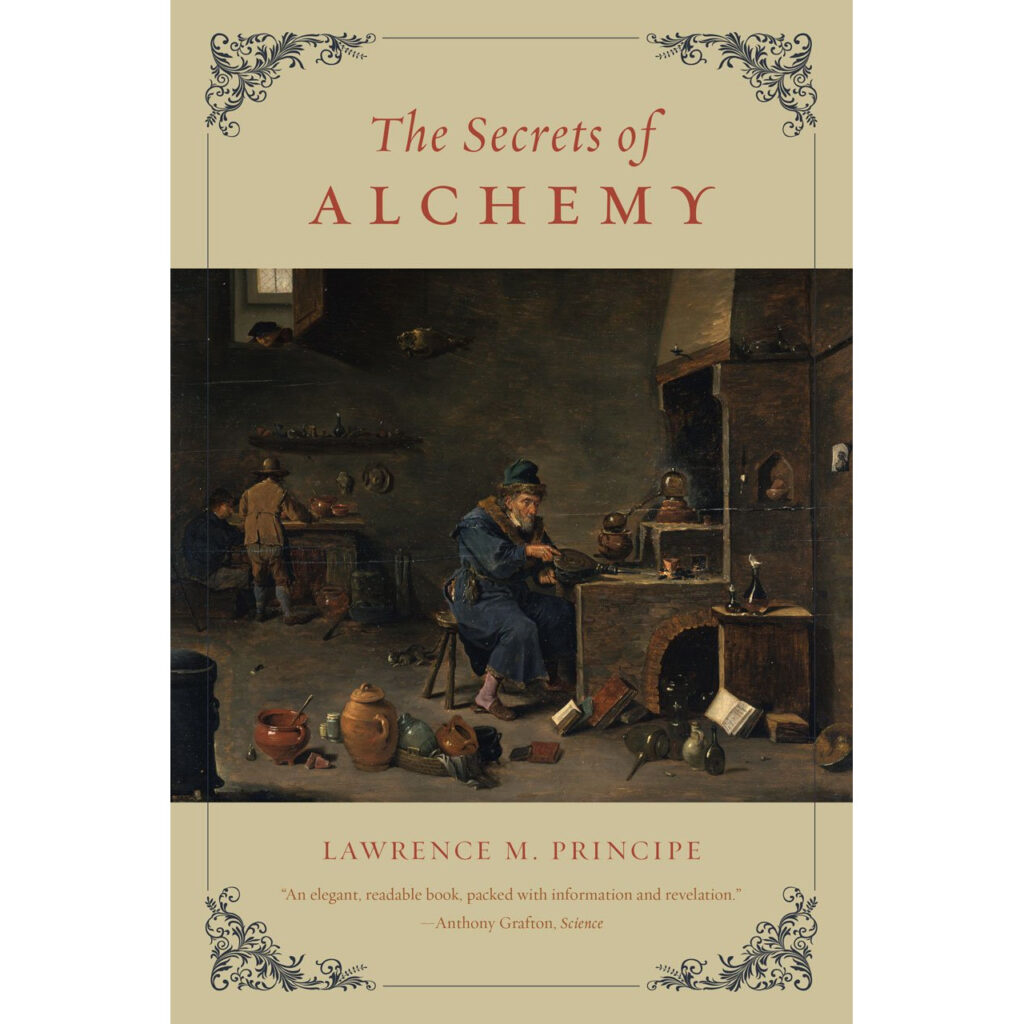The Secrets of Alchemy
Principe, Lawrence M.
The Secrets of Alchemy brings alchemical history vividly into the light, challenging the misconception that alchemy was mere superstition. Instead, Principe presents it as a serious, empirical, and at times ingenious precursor to modern chemistry. He leads readers through a sweeping historical canvas—from Greco-Egyptian origins, through Arabic and medieval Latin alchemy, to its early modern flourishing and residual influence today University of Chicago PressScience History Institute.
Principe opens with alchemy’s earliest roots in third-century Egypt, spotlighting figures like Zosimos of Panopolis—whose texts reveal careful experimentation, theoretical reasoning, and apparatus design that look remarkably like early chemistry Science History Institute. The narrative continues through medieval and Renaissance alchemists, including the enigmatic Basil Valentine—credited with early observations such as ammonia production and even descriptions of sulfuric acid—though likely a pseudonymous figure Wikipedia.
One of the book’s most compelling dimensions is its exploration of alchemical recipes within a modern laboratory. Principe, with historian-scientist precision, recreates historical experiments, such as the “glass of antimony” and the “philosopher’s tree,” taking into account impurities, material contexts, and experimental conditions University of Chicago PressScience History Institute. These reconstructions go beyond passive description and offer tangible insight into the skills and risks alchemists navigated.
The prose is both scholarly and accessible. Principe deftly illuminates the symbolism and code-laden language alchemists used—often dismissed today as mystical gibberish—without romanticizing or dismissing its metaphorical significance Science History Institute. With humor, clarity, and erudition, he restores balance between critical scrutiny and empathetic understanding.
Effectively, Principe reframes alchemy as a rite of experimental creativity rather than a fools’ trick. He shows how it contributed directly to metallurgy, medicine, mining, and chemical theory—underscoring alchemy’s historical integrality to the evolution of scientific methodology Science History Institute. The book’s final chapters trace how alchemy faded from intellectual favor only to survive in art, literature, and cultural metaphor before being revived as a legitimate field of historical inquiry.
Summary Verdict
The Secrets of Alchemy stands as a landmark journey through alchemy’s intellectual heritage. Principe’s dual credentials allow him to interpret obscure manuscripts, reconstruct experiments, and contextualize myths in a way few others can. The result is a work that is simultaneously brimming with scholarly rigor, hands-on experimentation, and engaging narrative.
For readers interested in the roots of chemistry, the evolution of scientific thought, or the alchemist’s worldview, this book is not just informative—it is revelatory.
Hold it in your hands.
Lawrence M. Principe is the Drew Professor of the Humanities at Johns Hopkins University, holding joint appointments in the Departments of History of Science and Technology and Chemistry Wikipedia. A dual PhD in chemistry and history of science, Principe is widely regarded as one of the world’s foremost experts on alchemy, especially Western traditions Wikipedia. His approach often brings alchemical practice out of obscurity through laboratory reconstructions of historical recipes, a method he pioneered to validate alchemy as a serious precursor to modern chemistry Wikipedia.
Published originally in 2012 and reprinted in paperback on November 18, 2015, The Secrets of Alchemy spans 288 pages, incorporates 12 color plates, 23 halftone images, and 4 line drawings University of Chicago PressBarnes & Noble. The book is structured across seven chapters plus an introduction and epilogue, with extensive endnotes and bibliography—reflecting its scholarly depth Chemistry WorldUniversity of Chicago Press.
Reviews from major publications underscore its clarity, liveliness, and scholarly significance. Nature praised it as “elegant, readable… packed with information and revelation” University of Chicago Press. Science commended its masterful blend of chemical experimentation and historical insight University of Chicago Press. Los Angeles Review of Books called it an “essential corrective” to romanticized views of alchemy University of Chicago Press. And New Scientist highlighted Principe’s laboratory reproductions as one of the book’s principal strengths University of Chicago Press.

